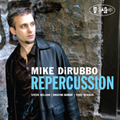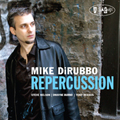by Jeff Krow
Mike DiRubbo – Repercussion – Positone Records PR8051, 55:10 ****:
(Mike DiRubbo, alto sax; Steve Nelson, vibes; Dwayne Burno, bass; Tony Reedus, drums)
Positone Records, a new jazz label out of Los Angeles, has certainly hit the ground running. They are signing some of the best young jazz talent, mostly in the bop and hard bop vein. We’ve previously reviewed Positone releases from trumpeter Jim Rotondi and saxophonist, Ralph Bowen. Positone just recently signed B-3 organist, Sam Yahel, as well. You can add alto saxist, Mike DiRubbo, to their roster and it’s an excellent move. DiRubbo, whose playing brings to mind Jackie McLean, previously recorded for Criss Cross and Sharp Nine.
His new CD, Repercussion, is made up of a quartet featuring the great vibist, Steve Nelson, a regular member of Dave Holland’s group, and bassist Dwayne Burno. This 2008 recording also featured drummer, Tony Reedus, who sadly passed away last year from an embolism at the young age of 49. It was a terrible loss for the jazz community as Reedus was a first call New York drummer, who had several CDs as a leader for Criss Cross. It’s hard enough to lose our jazz favorites at older ages, but to lose one such as Reedus, in the prime of his life, is especially devastating.
The sympathetic pairing of vibist Nelson with DiRubbo makes for a great interaction. On the title cut, DiRubbo brings to mind Coltrane, and Nelson’s vibes provide an intriguing foil to Mike as they brighten up the mix. Engineer, Nick O’Toole, has done a great job bringing out the full flavor of ring of the vibe tones.
DiRubbo wrote seven out of the nine tracks on this CD. Brubeck’s The Duke is one of the two tracks Mike adds to his own compositions. It shows off Mike’s lyrical abilities, and Nelson again comps nicely. Lunar follows and you can feel the drive that Reedus brings to the quartet, with Mike bringing some great bop lines. Highbridge Lullaby, is very special and at only 3:38, one wants a bit more of this lullaby.
Nightfall and Déjà Vu continue in this warm vein, as DiRubbo combines both warmth with a keening searching edge that was a specialty of Jackie McLean. Both invite close listening. Nelson is always right there to provide fills and sparkling solos. Too Late Now is a ballad in which the simpatico of Mike and Steve is shared. It would make great late night listening. Nelsonian, written by DiRubbo for Nelson, lets Steve have free rein and he brings to mind Milt Jackson, with his command of his instrument.
I’m hopeful that DiRubbo will keep the vibraphone in his future recordings – (an invitation to Joe Locke?) – as Repercussion has such a great alto/vibes communication. This CD keeps the winning Positone streak alive.
TrackList: Repercussion, The Duke, Lunar, Highbridge Lullaby, Nightfall, Déjà vu, Too Late Now, Nelsonian, Pisces Rising






 Sean Nowell
Sean Nowell
